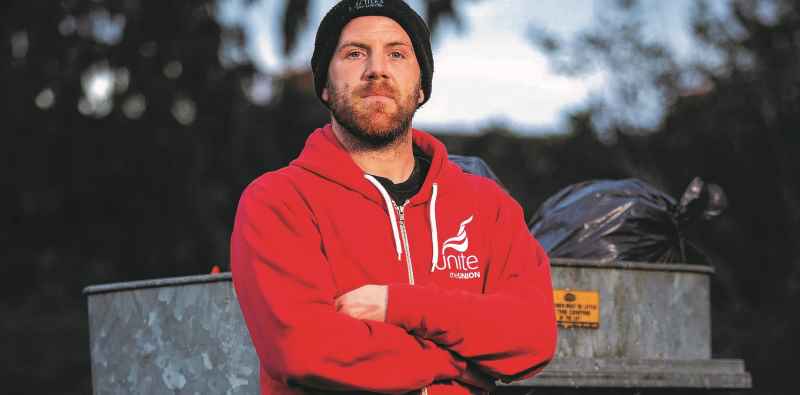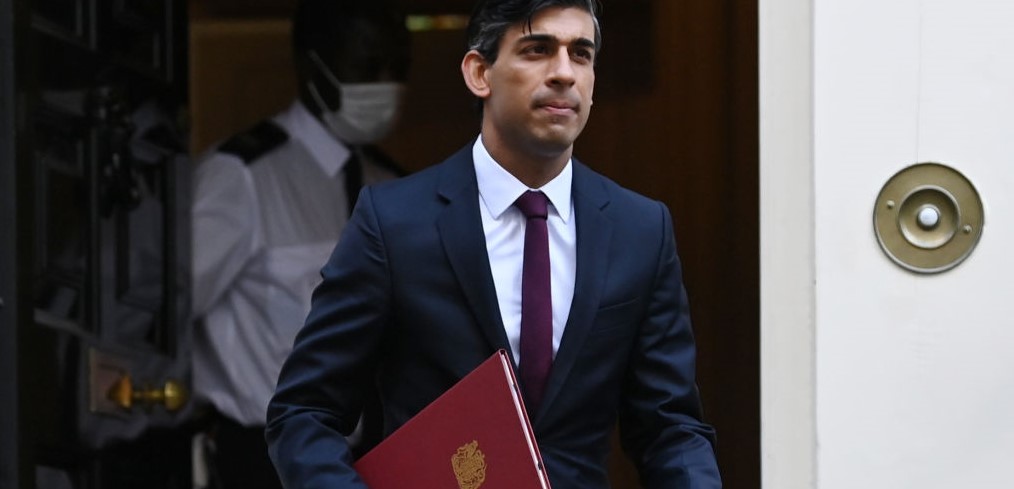Just not taking it
Paramedic Debbie Wilkinson (pictured) is facing a heart-breaking decision. After dedicating 26 years of her life to responding to accidents and emergencies in Leeds, she can barely afford to get by and is thinking about leaving the job she loves.
Unite member Debbie said, “Things are really hard and I literally live hand-to-mouth. Household bills rise with inflation year on year – but my salary doesn’t.
“I simply don’t know how long I will be able to keep my head above water. This government does not value me as a healthcare professional or indeed value any input I have into saving people’s lives.”
Debbie is not alone. Tens of thousands of public sector workers are increasingly incensed at the Tories after suffering a seven year pay freeze that has left them struggling to get by. Now that anger is on the verge of boiling over, trade unions, including Unite, are threatening coordinated industrial action if public sector pay is not increased to a level people can live on.
Since the 1 per cent pay cap was introduced by the coalition government in 2010, paramedics like Debbie have lost ÂŁ3,858 a year in real terms. Nurses and dieticians and other specialised NHS staff have lost similar amounts, while low-paid ancillary workers have had ÂŁ897 cut from their annual salary.
In 2016, for the first time since the 2008 financial crisis, public sector staff earned less than their private counterparts, recent Treasury figures revealed.
The data showed a 0.6 per cent disparity between hourly rates and was reinforced by the office for national statistics, which said that public sector wages are on average 5.5 per cent lower than those at similar sized private employers.
At the same time as public sector workers suffered massive drops in their incomes the cost of living increased by 12 per cent. TUC polling found that 15 per cent of public sector workers skipped meals this year to make ends meet, while 24 per cent said they couldn’t pay an unexpected bill of £500.
â€Undervalued’
“(The pay cap) makes me feel undervalued and I am now struggling on a month to month basis,” said Unite member and Coventry healthcare worker Jason Moore.
Jason’s grievances were echoed by Unite member Emma Randle, who is a clinical studies officer in Birmingham and hasn’t had a pay rise in seven years.
“I listened to our health secretary at the Tory party conference. I heard the meaningless and hollow platitudes that trip off the tongue confirming what we already know, that without staff and their dedication there would be no NHS,” she said.
“But what I see every day is an NHS is on its knees, barely functioning with frustrated clinicians not being able to care for their patients properly, worn out, disillusioned and demoralised.”
The Tories – who cheered in June when they voted down a Labour bid to raise salaries for emergency service workers – have made attempts to quell the growing disgust at their treatment of the people who provide vital public services.
Over the last few months the government announced that prison and police officers will receive a 1.7 per cent and 2 per cent pay rise respectively and signalled that NHS workers are also in line for an as yet undisclosed rise.
But the government has not said whether the money will come from fresh funding or if the cash will be diverted from already under strain services. Nor is there much hope that any pay increases will be sufficient to bridge the yawning disparity between public sector incomes and growing living costs.
Additionally, the government’s grudging concessions do not mention the thousands of public sector workers who are not part of the health, police or prison services.
Even if every public sector worker was given a 1.7 per cent or 2 per cent pay rise this would still amount to a pay cut. TUC analysis shows a nurse would see a real terms loss in yearly income by 2022 of ÂŁ964 at 1.7 per cent and ÂŁ500 at 2 per cent. A librarian would see a wage fall of ÂŁ584 or ÂŁ303.
Unite national officer for health Sarah Carpenter said without prompt government action there will be “widespread revolt”.
She said, “Overworked NHS staff are at a tipping point, many are unable to support themselves on their hard-earned wages.
“The Tories are driving the health service over the brink and if they do not provide a pay rise that allows staff to get on with bringing the NHS back to health there is going to be widespread revolt.”
Unite national officer for local authorities Jim Kennedy said feelings were running just as high in that sector. He said, “Local Authority workers deserve fair and decent pay and they deserve respect for the services they deliver. It’s time for the government to recognise this and properly fund a pay rise that remedies the 21 per cent cut in pay workers have experienced since 2010.”
In response to the Tories’ pay attacks public sector trade unions, including Unite, are taking action. While the specifics of their pay claims vary, they stand together behind demands to end pay restraint for all public sector workers and for pay rises to be funded with a fresh injection of money – not from current budgets already under severe strain from years of austerity.
In a sign of the seriousness of the situation, unions have indicated coordinated industrial action could be on the cards if the government continues to inflict pay misery on the public sector.
Labour has condemned the Tories’ “divide and rule” tactics of offering some public sector workers wage increases and leaving others out in the cold. Jeremy Corbyn said a Labour government would “end the public sector pay cap and give all workers the pay rise they deserve and so desperately need”.
This feature first appeared in Unite’s members magazine uniteWORKS. You can read the latest edition on the Unite website here. Or as a Unite member you can receive a print or digital copy by changing your membership records through My Unite or by contacting your local regional office regional membership admin team.
 Like
Like Follow
Follow


